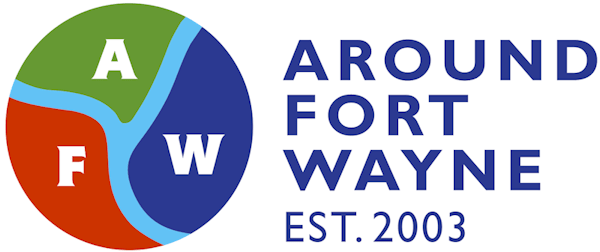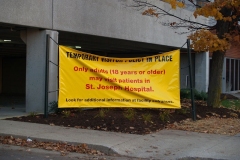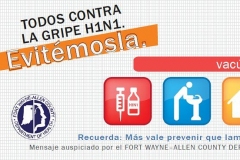Frequently-Asked Questions (FAQs) about the H1N1 Virus
A No Nonsense Guide
The US Centers for Disease Controls and Prevention (CDC), Dr. Judith Monroe – the Indiana State Health Commissioner, and the Fort Wayne-Allen County Department of Health are the sources for these answers.
Is H1N1 the same as the swine flu?
A few years ago, it was called the swine flu. However, it is now called the Influenza A – H1N1 virus. It is a subtype of influenza virus A and the most common cause of influenza (flu) in humans.
Some strains of H1N1 are endemic in humans and that is the focus of the 2009 national vaccination initiative. There are still some H1N1 strains that are endemic in pigs (swine influenza) and even in birds (avian influenza).
Why should people be vaccinated for H1N1?
The main reason is to protect oneself and others from illness and possible death.
How serious is this H1N1?
The World Health Organization in June, 2009, declared H1N1 a flu pandemic, which is a disease that travels worldwide, causing serious illness and even death. The President’s Council of Advisors on Science and Technology estimates the flu could infect 30 to 50 percent of the population and could result in nearly 90,000 deaths in the USA.
What about Indiana?
According to a recent report in the Fort Wayne News-Sentinel, Indiana Health Commissioner Dr. Judith Monroe said that one in every thousand Hoosiers may have already contracted H1N1, and 98 percent of state flu cases were that virus strain. Four Hoosiers have died from the flu.
The World Health Organization has confirmed more than 4,000 worldwide deaths from the flu, which includes symptoms of fever, cough, sore throat, runny or stuffy nose, body aches, chills and fatigue. There have also been 4 confirmed cases in the local area in the past few months.
Who are the target groups?
CDC recommends that the following groups receive the vaccine before others: pregnant women, people who live with or care for children younger than 6 months of age, health care and emergency personnel who provide direct patient care, parents with children younger than 6 months, children 6 months to 4 years, and children ages 5-18 with pre-existing chronic health conditions.
Then, the next group would be people age 25 and under and those of any age with pre-existing chronic health conditions. The lowest priority group is the general public.
However, Indiana State Health Commissioner Dr. Judith Monroe recommends every resident receive the vaccine for H1N1, along with their seasonal flu shot.
Who should NOT receive the vaccination?
Children under the age of 6 months and people allergic to eggs since the vaccine studies to date have recommended this.
The nasal H1N1 vaccine is not recommended for pregnant women (who are at higher risk for mortality from H1N1 than general population) for kids under age 2 or for people with asthma or other chronic medical conditions.
If you have any concerns, check with your doctor before receiving the vaccination.
Do people need to hurry to get the vaccine?
No. The vaccines will be distributed beginning in October and for several months. Only the high risk target groups may need to hurry, and that means those indicated above, such as pregnant women*, parents with young children, and health care workers.
Again – the nasal H1N1 vaccine is not recommended for pregnant women (who are at higher risk for mortality from H1N1 than general population) for kids under age 2 or for people with asthma or other chronic medical conditions.
The general public can wait and do as vaccines become available over the course of the next few and many months.
Do undocumented residents and refugees qualify for the vaccines?
Yes.
Is it a guarantee?
No. There are no guarantees with flu vaccines in general, but they are a medical defense against the flu. The vaccine significantly reduces the chances of contacting the H1N1 virus.
Does it make a person sick?
According to the New-Sentinel report, State Health Commissioner Judith Monroe said, “(The vaccine) is a killed virus, and you cannot get (the flu) from the vaccine.”
The Commissioner said, “If you feel a little something afterward – feverish, achy – that means your immune system is gearing up and making antibodies like you want it to. That’s
Frequently-Asked Questions (FAQs) about the H1N1 Virus
A No Nonsense Guide
The US Center for Disease Control and Prevention (CDC), Indiana State Health Commissioner Dr. Judith Monroe, and the Fort Wayne-Allen County Department of Health are the sources for these answers.
Is H1N1 the same as the swine flu?
A few years ago, it was called the swine flu. However, it is now called the Influenza A – H1N1 virus. It is a subtype of influenza virus A and the most common cause of influenza (flu) in humans.
Some strains of H1N1 are endemic in humans and that is the focus of the 2009 national vaccination initiative. There are still some H1N1 strains that are endemic in pigs (swine influenza) and even in birds (avian influenza).
Why should people be vaccinated for H1N1?
The main reason is to protect oneself and others from illness and possible death.
How serious is this H1N1?
The World Health Organization in June, 2009, declared H1N1 a flu pandemic, which is a disease that travels worldwide, causing serious illness and even death. The President’s Council of Advisors on Science and Technology estimates the flu could infect 30 to 50 percent of the population and could result in nearly 90,000 deaths in the USA.
What about Indiana?
According to a recent report in the Fort Wayne News-Sentinel, Indiana Health Commissioner Dr. Judith Monroe said that one in every thousand Hoosiers may have already contracted H1N1, and 98 percent of state flu cases were that virus strain. Four Hoosiers have died from the flu.
The World Health Organization has confirmed more than 4,000 worldwide deaths from the flu, which includes symptoms of fever, cough, sore throat, runny or stuffy nose, body aches, chills and fatigue. There have also been 4 confirmed cases in the local area in the past few months.
Who are the target groups?
CDC recommends that the following groups receive the vaccine before others: pregnant women, people who live with or care for children younger than 6 months of age, health care and emergency personnel who provide direct patient care, parents with children younger than 6 months, children 6 months to 4 years, and children ages 5-18 with pre-existing chronic health conditions.
Then, the next group would be people age 25 and under and those of any age with pre-existing chronic health conditions. The lowest priority group is the general public.
However, Indiana State Health Commissioner Dr. Judith Monroe recommends every resident receive the vaccine for H1N1, along with their seasonal flu shot.
Who should NOT receive the vaccination?
Children under the age of 6 months and people allergic to eggs since the vaccine studies to date have recommended this.
Do people need to hurry to get the vaccine?
No. The vaccines will be distributed beginning in October and for several months. Only the high risk target groups may need to hurry, and that means those indicated above, such as pregnant women, parents with young children, and health care workers.
The general public can wait and do as vaccines become available over the course of the next few and many months.
Do undocumented residents and refugees qualify for the vaccines?
Yes.
Is it a guarantee?
No. There are no guarantees with flu vaccines in general, but they are a medical defense against the flu. The vaccine significantly reduces the chances of contacting the H1N1 virus.
Does it make a person sick?
According to the New-Sentinel report, Indiana State Health Commissioner Dr. Judith Monroe said, “(The vaccine) is a killed virus, and you cannot get (the flu) from the vaccine.”
The Commissioner said, “If you feel a little something afterward – feverish, achy – that means your immune system is gearing up and making antibodies like you want it to. That’s a good thing and means you probably needed the vaccine.”
Is it free?
Yes, it is free to the “health partners,” such as hospitals, clinics, pharmacies, and other organizations and businesses; but they may charge a fee to the consumer.
Health officials recommend calling and checking before going.
Will the seasonal flu vaccine also protect against the 2009 H1N1 flu?
The seasonal flu vaccine is not expected to protect against the 2009 H1N1 flu.
Can the seasonal vaccine and the 2009 H1N1 vaccine be given at the same time?
Health officials say the seasonal flu and 2009 H1N1 vaccines may be administered on the same day. The usual seasonal influenza viruses are still expected to cause illness this fall and winter. Individuals are encouraged to get their seasonal flu vaccine as soon as it is available.
Are these flu shots?
Vaccines will be available in either nasal dosage or by syringe.
Is this one or two doses?
CDC recommends one dose for people 10 and above and two doses for children between the ages of six months and 10 years of age.
Will there be an adequate supply of vaccine?
CDC does not expect a shortage of 2009 H1N1 vaccine, but availability and demand can be unpredictable. There is some possibility that initially the vaccine will be available in limited quantities. The USA total will be 250,000,000 vaccines over the next several months.
How does a person know if they may have the H1N1 flu?
CDC admits that telling the difference between the seasonal flu and the H1N1 virus is difficult. The symptoms are virtually the same — fever, cough, sore throat, runny or stuffy nose, body aches, headache, and chills.
Yet the H1N1 flu is more contagious, and seems to affect a younger age group. CDC recommends contacting a doctor if one has signs of flu-like symptoms.
How do people find out where to get the H1N1 vaccine?
There are many ways. Health officials recommend calling one’s healthcare provider, visiting the www.fighttheflu.org website or calling 211, First Call for Help, a service of United Way of Northeast Indiana.




Good info…but the source names are incorrect: should be: U.S. Centers for Disease Control and Prevention; Fort Wayne-Allen County Department of Health; and Indiana State Department of Health and/or Indiana State Commissioner of Health Dr. Judy Monroe…also should be noted that the nasal H1N1 vaccine not recommended for pg. women (who are at higher risk for mortality from H1N1 than general population, for kids under age 2 or for people with asthma or other chronic medical conditions.
Thanks, Jen! I appreciate it and have made the changes as they are very appropriate.
Thanks Jennifer–Truly mean it.